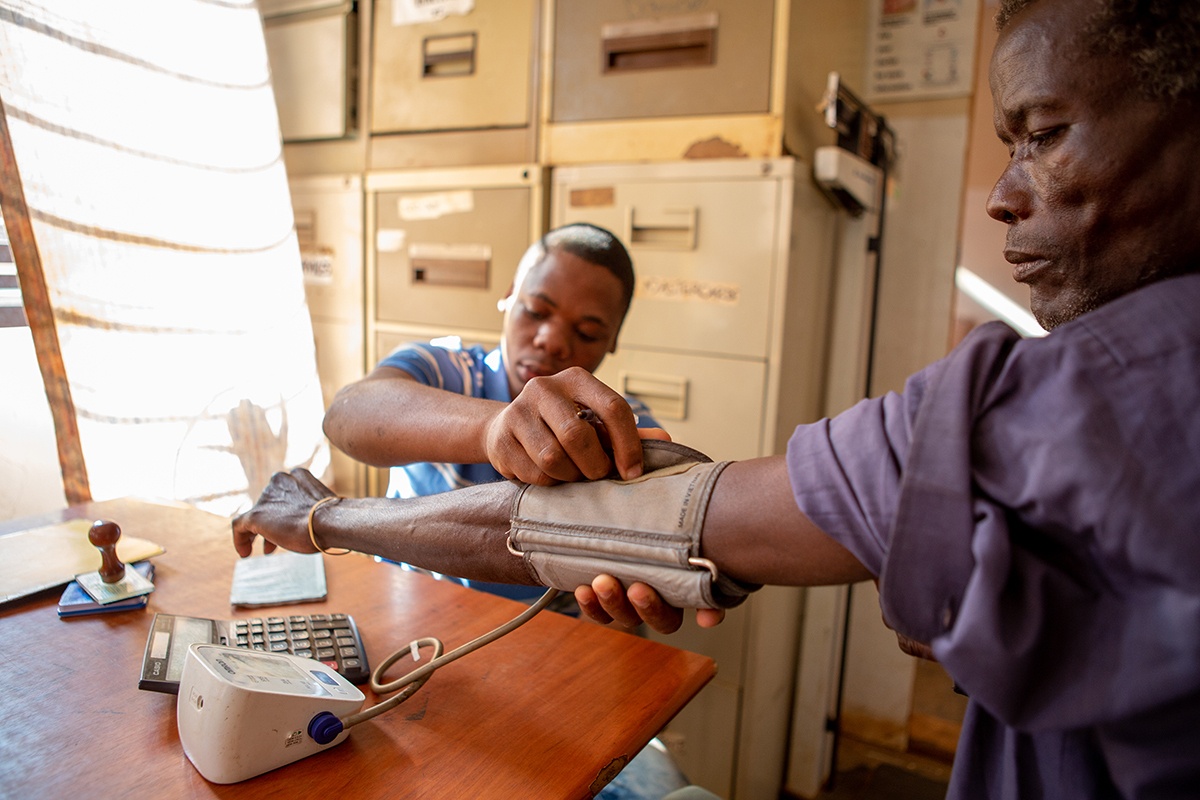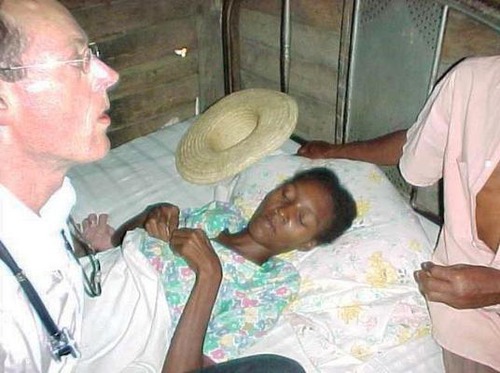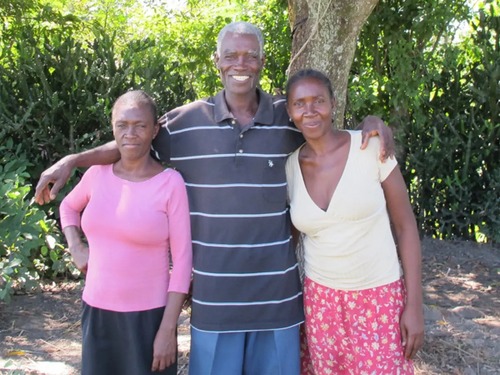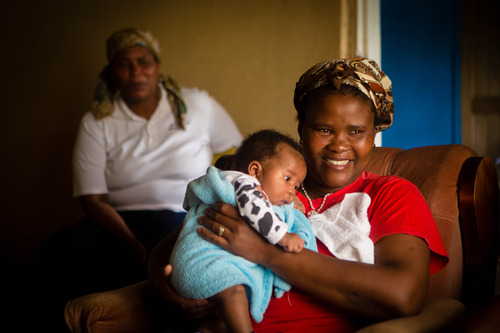Timeline: PIH’s Work, Advocacy in HIV/AIDS
Model of care began in Haiti, influenced global policy, and spread around the world
Posted on Jul 27, 2022

In 1986, Partners In Health began caring for patients diagnosed with HIV/AIDS in Haiti. Clinicians with Zanmi Lasante, as PIH is known in Haiti, started with free testing, counseling, and inpatient care. Soon thereafter, PIH leadership joined a growing global advocacy movement fighting for accessible, affordable, lifesaving antiretroviral treatment and the rights of all patients, despite nationality or economic status.
By the late 1990s, PIH was among few organizations providing free, comprehensive HIV/AIDS treatment to marginalized patients. Haitian men and women living with the virus rose from their deathbeds, in what became termed “the Lazarus effect,” as their conditions improved with community-based care and support.
Word of PIH’s success in Haiti spread rapidly. Over time and at the invitation of national governments, PIH began collaborating with colleagues in Peru, Rwanda, Lesotho, Malawi, Liberia, and other countries to replicate its model of HIV/AIDS care globally. Though its reach broadened, PIH’s mission never waned: the work has always centered on accompanying patients throughout their medical journeys and beyond, with social support, compassion, and top-notch care.
Explore the timeline below for more information about PIH’s global work in HIV/AIDS:
1991
The First Patients
The first person living with AIDS walked through PIH's clinic doors in Haiti in 1986. Free testing, counseling, and inpatient care soon followed for hundreds of people living with AIDS.

Dr. Paul Farmer visits Adeline Merçon, who is among the first people living with AIDS to benefit from ART in Haiti. Photo courtesy of PIH
1992
Paul Farmer's AIDS and Accusation
Farmer's book offers a systematic analysis of the racism driving theories that Haiti was the source of HIV in the western hemisphere.
1998
HIV Equity Initiative
PIH launched one of the first programs to provide free, comprehensive HIV and AIDS treatment. Newly recruited and trained community health workers delivered medications and accompanied people living with AIDS through treatment.

Still healthy today, Adeline Merçon, St. Coeur François, and Monèse Gracia (left to right) began ART in 1999 and 2000 through the PIH-supported HIV Equity Initiative. Photo by Daniel Eisenson
1999
Paul Farmer's Infections and Inequalities
Farmer shows how entrenched beliefs about "cost-effective treatment" and patient "non-compliance" blame people living with AIDS for their illnesses, such as HIV, rather than call out systematic forces of oppression.
2001
Cange Declaration
As Haitians living with HIV regained their health, some became activists, issuing the Cange Declaration and calling for increased access to lifesaving drugs.
2003
Global Advocacy and Influence
PIH's success in Haiti was key to expanding ARTs globally, contributing to the development of the Global Fund to Fight AIDS, Tuberculosis and Malaria and PEPFAR.
2005
National HIV and AIDS Program in Rwanda
PIH was invited to Rwanda to support the country's HIV and AIDS program by integrating HIV care and treatment in many primary health centers in Rwinkwavu District
2010
CHWs Improve Outcomes in Peru
A study in Lima, Peru showed people living with HIV and accompanied by a CHW had better outcomes at 12 months, including higher viral suppresion.
2014
Doubling Access in Rural Lesotho
PIH supported the government of Lesotho to revamp 72 inadequately resourced and understaffed clinics throughout four districts, increasing HIV treatment enrollment by 133%.

Matsebo Lerotholi learned she was living with HIV in 2009 and started on ART. She gave birth to her son, Nkuebe, in 2018 and is accompanied by her village health worker, Malerato Tsoelesa (in background). Photo by Cecille Joan Avila / PIH
2018
Post-Ebola Improvements in Liberia
A study of post-Ebola care in Liberia found that CHW support resulted in better ART coverage and retention of patients living with HIV.
2021
Leaving No One Behind in Malawi
PIH launched in Malawi the Tracing Retention and Care Enrollment (TRACE) program to welcome people living with HIV back into care. With CHW outreach, 86% re-engaged with HIV care.

At Neno District Hospital in Malawi, Nurse John Paul (left) and Dr. George Talama (right) examine a 27-year-old woman receiving HIV counseling and psychiatric help. Photo by Zack DeClerck / PIH
2022
HIV and AIDS Care Continues Amid COVID
As new threats emerged in the form of COVID-19, highlighting old challenges in care delivery, people living with HIV continued to receive lifesaving HIV treatment, offering hope.

